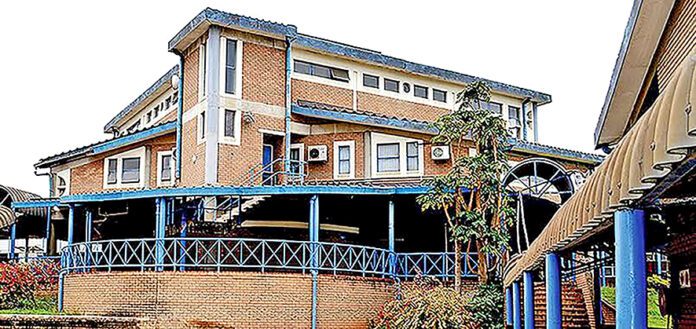Tender fraud and the hiring of hit men to deal with perceived competitors and whistleblowers in South Africa’s institutions of higher learning has lifted the lid on the underhand and dodgy dealings following the execution-style and brazen killing of the University of Fort Hare (UFH) vice-chancellor Professor Sakhela Buhlungu’s bodyguard.
Mboneli Veseli’s life was snuffed out when unknown gun-wielding assassins ambushed and killed him while he was parked outside the home of Buhlungu in eDikeni, previously Alice, in the Eastern Cape.
Veseli was Buhlungu’s head of security detail and speculations are rife Veseli could have been in the wrong place at the wrong time and that Buhlungu was the intended target.
At the heart of hostile relations, which have turned deadly, is an alleged string of fraud and corruption investigations that have seen the Special Investigating Unit (SIU) being roped in to probe alleged malfeasance in the awarding of lucrative contracts at the historic UFH.
Another subject of the SIU investigations is allegations of the selling of degrees.
Veseli is not the only victim.
In May last year, UFH fleet and transport manager Petrus Roets was murdered
Roets was believed to have been one of the corruption busters who dared to expose malfeasance. Other whistleblowers at the institution are said to be constantly looking over their shoulders, wondering who might be next on the hit list.
According to whistle-blowers, who spoke to Sunday World in the aftermath of Veseli’s tragic death, the events at UFH in the past week bring to the fore the rifeness of tender fraud and the use of hit men to deal with perceived competitors and whistleblowers in the higher education sector.
“The problem is severe and complicated. It’s not just criminal gangs from outside, but several senior managers and those holding key positions in council working in cahoots with construction cartels and feared taxi bosses,” said Daniel Mafuleka, who was head of procurement at one of the higher learning institutions in KwaZulu-Natal.
“Institutions of higher learning are viewed by these groupings as lucrative for dodgy business dealings because the government has poured in a lot of money in mega projects such as the building of student accommodations.”
Mafuleka, who declined to mention the name of the university for fear of victimisation, said he had to quit and flee for his life after learning of a plot to assassinate him.
“Following my proposal for support staff such as security guards and cleaning services to be absorbed and transferred to the university payroll, I started receiving death threats. I had to quit my job.
“There was resentment, and some felt I was becoming too big for my boots because the tender beneficiaries would lose a lot of money. But the exercise was for the institution to save money, while workers get a decent salary, including benefits,” he said.
Philani Ndwalane, another corruption buster, and a former staffer at Coastal KZN TVET, with various other campuses located under the eThekwini metro, said the politicisation of higher learning institutions had created a breeding ground for rogue elements to hijack and loot money.
“Political parties are the decision-makers dictating how universities should function.
“Councils are dominated by deployees of political parties, whose sole purpose is stealing funds allocated for various infrastructural projects.
“This is a serious problem in the so-called technical and vocational, education and training colleges, especially those located in rural areas and townships,” Ndwalane said.
He recalled what prompted him to leave was that after exposing the fraudulent awarding of tenders he became a marked man. “That was the last straw that broke the camel’s back. I was hunted down and had to sell my house, fleeing hitmen.
“I had exposed massive corruption in the management of students’ funds and how millions of rand were wasted in investment pyramid schemes, using key people in the college management and council. At some stage, my 12- year-old daughter survived an abduction ordeal. It became too much, taking a heavy toll on my health,” he said.
The TVET college had been the centre of a spate of killings and threats as various factions fought for control of financial resources.
One notable killing was the November 2020 murder of the institution’s head of infrastructure development Lindinkosi Mazibuko, who was ambushed and shot dead inside a parking lot at the college’s uMbumbulu campus.
It is believed the murder was aimed at silencing him. Three student leaders were attacked, leading to the death of Simangaliso Khumalo, who was one of the leaders of student protests questioning the misuse of funds.
During his consultation with stakeholders at Fort Hare University this week, higher education minister Blade Nzimande bemoaned the capture of
higher learning institutions, saying they had been turned into cash cows to enrich criminal syndicates.
“The post-school education and training sector, like some of our public and private enterprises have been plagued by corruption, maladministration and the capture by some unscrupulous individuals posing as businesspeople who often collaborate with our institutions.
“This phenomenon now finds expression within our institutions of higher learning targeted by criminal syndicates assisted often by employees of our institutions. These syndicates see our institutions as cash cows,” said Nzimande.
University managers allocated private security
Unisa
- It emerged last year that the University of South Africa had proposed that its executive management, including vice-chancellor Prof Puleng LenkaBula, should be assigned private security following alleged threats on their lives posted on social media.
Wits
- Former vice-chancellor Adam Habib and his family faced similar threats, prompting a security assessment that revealed that his life was in danger and that he should be accorded protection.
Mangosuthu University of Technology
- A forensic report revealed that its former vice-chancellor Mashupye Kgapola had hired private bodyguards at a cost of R4 693 809.78 over a six-year period.
Follow @SundayWorldZA on Twitter and @sundayworldza on Instagram, or like our Facebook Page, Sunday World, by clicking here for the latest breaking news in South Africa. To Subscribe to Sunday World, click here



